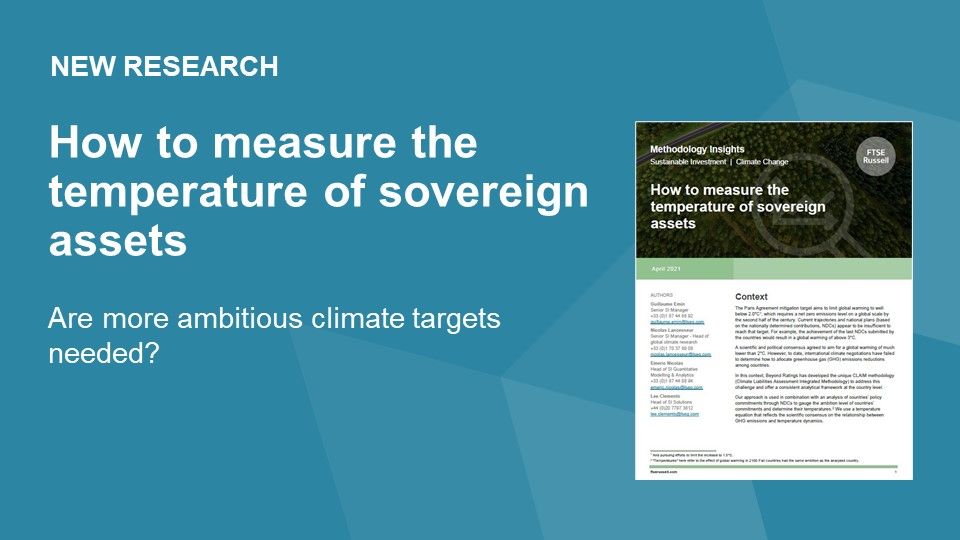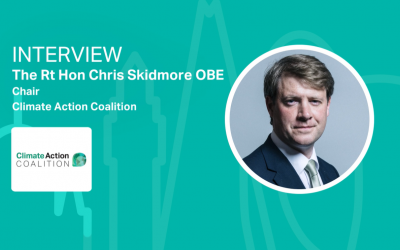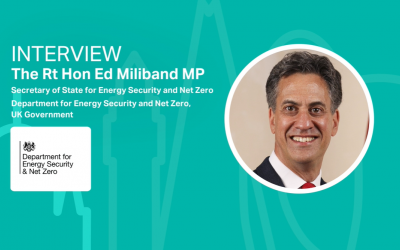On reflection: Are we data-ready for the great leap forward in sustainable investing?
The global response to climate change represents the “most significant economic transition in history,” according to David Blood, the co-founder of Generation Investment Management, and an investment opportunity unlike any he has seen in his 35-year career in finance.

The global response to climate change represents the “most significant economic transition in history,” according to David Blood, the co-founder of Generation Investment Management, and an investment opportunity unlike any he has seen in his 35-year career in finance.
“The economic opportunities of this transition, from a poverty and inequality perspective as well as a climate change perspective, are extraordinary,” he said, speaking on the second of a series of webinars organised by London Stock Exchange Group (LSEG) and the Principles for Responsible Investment (PRI).
Generation Investment Management, founded in 2004 by Blood with Vice President Al Gore, manages nearly $20bn in assets invested in companies its fund managers judge to be sustainable. “We want all CEOs to engage on climate, we want them to demonstrate action around the Paris accord or net-zero, and we want them to be clear about their goals,” he said.
“If they see the risks, but critically the opportunities, that’s when we get really interested.”
Mark Carney, UN special envoy for climate action and finance, and former Governor of the Bank of England, noted that, in the wake of the Covid pandemic, the climate and economic recovery agendas were coming together to mutually reinforce the investment opportunity.
“This is really a virtuous circle and a huge commercial opportunity,” he said. Efforts to move to a net-zero economy are set to underpin economic recovery from the Covid19 pandemic, by “catalysing the investment that we're going to need to create the jobs and growth that otherwise would not be there because of the weight of debt, and because of the uncertainty that consumers are facing.”
But, as companies begin to look beyond the effects of the pandemic, they need to clearly set out how they plan to respond to climate change, Carney added. Investors now expect “every company, in every sector” to be able to set out a “strategy for net zero … It’s a basic question”.
However, investors are struggling to understand how companies are positioned in terms of the low-carbon transition, and other ESG challenges. “When it comes to sustainability, there is a lack of relevant and comparable data,” said David Schwimmer, CEO of LSEG. “We view it as partly our responsibility to improve the data that's available to aid better decision-making on sustainable investments.”
He said that part of that data is delivered through developing sustainable indices, in partnership with investors, and by working with issuers, especially those that are at an earlier stage of disclosing climate risks. “We think it's critical for financial services to enable that kind of coordination between issuers and investors [necessary] to achieve a sustainable transition,” he said, mentioning in particular natural resources companies, many of whom are listed on London Stock Exchange.
Carney noted that, in the three years since the Task Force on Climate-related Financial Disclosures (TCFD) published its recommendations on voluntary climate reporting, most of the leading 1,100 companies across the G20 now disclosed against a number of the thematic areas it proposed (climate-related governance, strategy, risk management, and metrics and targets).
He added that the TCFD – which was established in 2015 by the G20’s Financial Stability Board and published the original recommendations in 2017 – was conducting a review of its recommendations “to understand how well the standards are working, and what’s used and what’s not”.
For investors, disclosure is just the starting point, Blood said. “What we’re trying to develop … are decision-useful metrics and tools” to manage climate risk in its portfolios, allocate capital to climate-linked opportunities, and to inform its engagement with companies to help them manage these risks and seize opportunities.
“The truth of the matter is that we’re only getting started,” he continued. “This is pretty complicated,” given the number of different metrics used to understand climate risk. He added that a number of investors and service providers are collaborating to assess the various approaches used, and where data gaps exist, with a view to establishing consensus around metrics that asset owners and asset managers can use to assess climate exposures.
Given the growing focus on climate transition, the next phase is about the methodologies, varied across different industries, to see which companies are best placed to thrive in the race to a net zero carbon economy.
To learn more about FTSE Russell click here.
© 2020 London Stock Exchange Group plc (the “LSE Group”). All information is provided for information purposes only. Such information and data is provided “as is” without warranty of any kind. No member of the LSE Group make any claim, prediction, warranty or representation whatsoever, expressly or impliedly, either as to the accuracy, timeliness, completeness, merchantability of any information or of results to be obtained from the use of FTSE Russell products or the fitness or suitability of the FTSE Russell products for any particular purpose to which they might be put. Any representation of historical data accessible through FTSE Russell products is provided for information purposes only and is not a reliable indicator of future performance. No member of the LSE Group provide investment advice and nothing contained in this document or accessible through FTSE Russell products should be taken as constituting financial or investment advice or a financial promotion. Use and distribution of the LSE Group data requires a licence from an LSE Group company and/or their respective licensors.






